“Aesthetics, Care, and Action” Symposium -- Wednesday -- 18 September
The “Aesthetics, Care, and Action” Symposium, part of Nomad 2024: The Infinite Sky Festival, held on 18 September at the University of Central Asia, Naryn Campus is an exclusive by-invitation event.
Participants will reflect on the value and relevance of aesthetics amidst contemporary social, environmental, and economic challenges, exploring questions about its ethical dimensions, educational implications, and potential to guide compassionate action. Please find below the session descriptions, speakers, and topics.
Opening Remarks by Dr Maxim Khomyakov, Dean of UCA's School of Arts and Sciences
Join Online
-
Webinar ID: 872 1249 0477
- Passcode: 236231

Dr Soheil Ashrafi is the Chair of Communications and Media at the University of Central Asia, Naryn Campus, and a co-founder of Nomad Festival. As an academic, researcher and essayist his research straddles across hermeneutics and phenomenology with a focus on designing pragmatism and everyday aesthetics.

Dr Michael Garbutt, co-founder of Nomad Festival, is a senior lecturer in the School of Art & Design at UNSW Sydney where he teaches spatial experience design, and researches mindfulness practices in art museums.
What has aesthetics ever done for anybody?
In a world grappling with climate change, poverty, war, rampant materialism, commercialism, hyperconnectivity, a collective attention deficit disorder, and emergence of AI, we want to question the role and value of aesthetics in addressing these challenges. Our interest in this topic comes from a decade of work, first in art museums, later in the role of aesthetics “beyond the art museum” the most recent framing of which involves fieldwork in Kyrgyz mountain communities. Our participatory research design involves collaborations with the people of the Tian Shan (The Mountains of Heaven) region of Kyrgyzstan, whose everyday experiences represent a rich site of aesthetic enquiry. Through contemplative, somatic, and embodied practices, we explore the relationship between the self and Other. As we will argue, this relationship is grounded in the cultivation of a sense of inner truth, unconcealed when the sensing agent experiences itself through being sensed. In different ways, the contributors to this symposium extend this line of enquiry, exploring how aesthetic practices can cultivate empathy, inspire action, and reimagine our relationship with the human and more-than-human world. By bringing together diverse perspectives, we hope to foster a dynamic conversation about how aesthetics can contribute to meaningful change and nurture a more caring, life-enhancing, and sustainable futures.
Join Online
-
Webinar ID: 872 1249 0477
- Passcode: 236231
09:15 - 09:30 -- Speaker #1 -- Tracie Costantino, PhD, is an educator and arts leader who serves as the provost at California Institute of the Arts. Her research in aesthetic education focuses on the nature of cognition in the arts, creativity, and the transformative potential of aesthetic experience. She is editor of the Journal of Aesthetic Education.

Incorporating Wisdom into a Framework of Care in Aesthetic Education
Addressing the symposium’s question, “Does an ethics of care and compassionate action require an aesthetic framework?”, I will explore the possibility of a framework that marries Dewey’s conception of the transformative potential of aesthetic experience as action and the contributions of wonder, with feminist and indigenous theories of practical wisdom that ask us to consider how we ought to act in relation to the care for our world and each other. This exploration will be grounded within the context of aesthetic education.
09:30 - 09:45 -- Speaker #2 -- Prudence Gibson PhD is a plant-humanities scholar and author of four monographs including The Plant Thieves 2023 and The Plant Contract 2018 along with three edited volumes including the latest, Dark Botany: The Herbarium Tales 2024. She is Lecturer at the University of New South Wales in Sydney and also Creative Submissions Editor of Plant Perspectives https://whpress.co.uk/PP.html.

Vegetal Aesthetics
Over the last 15 years, evidenced discoveries in plant science, such as plants’ capacities to memorise, learn and communicate, have influenced contemporary philosophy, particularly aesthetics. There are challenges to art praxes that incorporate plants, in light of this new knowledge. Artists are now asked to avoid subject/object dyads by avoiding flattening, framing or instrumentalizing the vegetal world. These aesthetic difficulties hound art and they hold creative people accountable for ensuring the independent agency of plants. This paper grapples with the aesthetic complexities of new plant-human relations and follows the impact of new plant knowledge on vegetal aesthetics. It proposes new aesthetic categories and focuses on the recent urban forest created by the Dirt Witches in Barlow Street Sydney as a case study in plant aesthetics.
09:45 - 10:00 -- Speaker #3 -- Frank Feltens is Curator of Japanese Art at the Smithsonian’s National Museum of Asian Art. He holds a PhD in art history from Columbia University and has authored six books, including Hokusai’s Brush (Smithsonian Books, 2020), Ogata Kōrin: Art in Early Modern Japan (Yale, 2021), with Yukio Lippit, Sesson Shūkei: A Zen Monk Painter in Medieval Japan (Hirmer, 2021), and, with Michael Garbutt and Nico Roenpagel, Mindful Eye, Playful Eye: 101 Amazing Museum Activities for Discovery, Connection, and Insight (Smithsonian Books, 2024).

Japanese Aesthetics: Now and Then
Over centuries, artists and historians have built a vast framework of aesthetic terms and concepts. Yet today that macrocosm of aesthetic inquiry is often reduced to cliched notions of “wabi-sabi” and “Zen” as synonyms of Japanese culture and historic taste. The story of Japanese aesthetics and their applicability to life today is much more layered than that. When delving into the history of Japanese aesthetics and keeping in mind that any art object produced in Japan historically was meant to be lived with, raises interesting potentials for considering Japan as a touchstone for the turbulent world we live in. In this short presentation, I focus on a few select concepts of Japanese aesthetic expression and contemplate how they might resonate with contemporary concerns.
10:00 - 10:30 -- Panel Discussion
10:30 - 10:40 -- Question/Answer Session
Join Online
-
Webinar ID: 872 1249 0477
- Passcode: 236231
11:00 - 11:15 -- Speaker #1 -- Freya Mathews is Emeritus Professor of Environmental Philosophy at Latrobe University, Australia. She is the author of over a hundred books, articles and essays in the area of ecological philosophy, including the 1991 classic, The Ecological Self (re-issued in 2021). Her latest book, The Dao of Civilization: a Letter to China, appeared in 2023. In addition to her research activities, she co-manages a private conservation estate in northern Victoria. She is a Fellow of the Australian Academy of the Humanities.

Can aesthetics play a key role in our approach to the present era of Earth Systems Collapse?
Is aesthetics as a distinct mode of attentiveness-to-things a function of agrarian and post-agrarian forms of society organized around an ethos of production – of ‘artefacture’ (the creation of artifacts), building and architecture, manufacture and industrialism? More particularly, does it stem from an ethos of design that inevitably accompanies the imperative to produce what we need for ourselves rather than relying, in pre-agrarian style, on ecologically attuned forms of direct collaboration with local environments to provide for our needs? As producers – artisans, builders, farmers, industrialists – we need design principles to guide our production. Is aesthetics, with its reference to various culturally relative criteria for appraisal, a distillation of these criteria, pertaining particularly to what makes artefacts (including those created in the name of art) pleasing to their intended users? I shall argue that a pre-agrarian orientation to the world reveals the contingency of both design, as an ethos, and aesthetics, as a form of sensibility. This opens up the possibility of an alternative approach to economic and cultural praxis.
11:15 - 11:30 -- Speaker #2 -- Gina Wall PhD is the Programme Director for the Glasgow School of Art’s Highlands & Islands Campus. Gina holds a practice-based PhD from the University of Dundee/DJCAD and is a Senior Fellow of the HEA. Gina’s research interests concern our practices with landscape; how landscapes are shaped and produced and the ways in which cultural and material remains hang on. Gina Wall’s research profile https://radar.gsa.ac.uk/profile/1080 orcid id: 0000-0001-7180-7686

Aesthetics as Entangled Worldmaking
Yuriko Saito argues that aesthetics plays a significant role in the communal, social effort of human worldmaking. I propose that the embodied turn offers an opportunity to rethink the aesthetic in order to open an understanding of its potential for supporting ethical more-than-human relations. In contradistinction to human-world relations as observer-observed, the aesthetic experience could be reconsidered in terms of material and psychological affect, generative of the world’s continual becoming. In response to the symposium provocation that the embodied turn holds to a notion of pleasure that is ethically problematic, I speculate that given the deep physiological embodiment of psychological affect, perhaps the question should be: how might affect, emergent through intra-action, support a care-full worlding of the world in more-than-human communities? What might be gained from diffracting the aesthetic experience through the lens of Karen Barad’s ethico-onto-epistemology, an affective ethics of entanglement?
11:30 - 12:00 -- Panel Discussion
12:00 - 12:10 -- Question/Answer Session
Join Online
-
Webinar ID: 872 1249 0477
- Passcode: 236231
13:20 - 13:35 -- Speaker #1 -- Altyn Kapalova is a Research Fellow and Acting Director at the University of Central Asia’s Cultural Heritage and Humanities Unit. She is also the founder of Central Asia’s Museum of Feminist and Queer Art, which promotes inclusivity and representation, providing space for under-represented narratives within the region’s cultural landscape. Altyn’s anthropological research informs her own artistic vision, as she creates experimental works that seamlessly blend elements of art, science, and politics.

Woman, Life, Freedom: The Role of Art in the Struggle for Human Rights in Central Asia
The Museum of Feminist and Queer Art (MoFA+) is dedicated to advocating for the rights of women and queer individuals. Through the transformative power of art, MoFA+ sees itself as a vehicle to amplify civic voices, fostering greater expressiveness and persuasiveness. The initiative aims to cultivate a safe and inclusive environment for women artists, challenging the historical dominance of male artists in public art spaces to elevate the visibility of women artists. In Central Asia, women artists often encounter barriers to resources and recognition compared to their male counterparts across various artistic disciplines. Nevertheless, there has been a significant rise in talented women artists in recent years, despite societal patriarchal structures. Their creativity not only inspires but also instigates change. This presentation delves into the symbiotic relationship between art, life, and the pursuit of social change, highlighting the contributions of women and queer artists within the MoFA+ framework.
13:35 - 13:50 -- Speaker #2 -- Richard Shusterman is the Schmidt Eminent Scholar in the Humanities at Florida Atlantic University. His books include Pragmatist Aesthetics and a graphic novella The Adventures of the Man in Gold. The French government awarded him the title of Chevalier dans l’Ordre des Palmes Académiques for his cultural work.

Somaesthetics, Self-Care, and Care for Others
Somaesthetic attention to one’s bodily feelings and form is often taken as essentially superficial and selfish. My talk will show, however, how such attention is not only crucial to self-care but also to caring for others. Key to the argument is the concept of soma – the living sentient, purposive body that is essentially implicated and shaped by an environment that is both material and social. The soma’s self-awareness includes an awareness of that environment and thus opens to the others in that environment. The soma is not only the locus of perception but also the medium of all our action in the world. This includes the action of caring; and genuine care implies real action rather than merely good intentions.
13:50 - 14:05 -- Speaker #3 -- Nico Roenpagel PhD is a 21st-century mystic and embodied researcher, enthusiastic about novel expressions of wisdom in our collective evolution. Equipped with a doctorate in art education (UNSW Sydney) and a daily meditation practice of 20 years, he has brought consciousness practices to universities, the corporate environment, classical music, and art museums.

The Aesthetics of Tantric Hedonism
In a materialist world that sells beauty, pleasure and individual freedom as the sole pathways to happiness, the philosophy of tantra can help generate a new lens: towards a reinvention of ethical hedonism. Tantra is based on the assumption that pleasurable and painful experiences as well as conventionally beautiful and ugly phenomena can equally contribute to cultivating insight, wisdom and happiness. Applying such a radical integration of polarities, taboos, shadow and discomfort to the pleasure-driven principles of hedonism generates a framework for an ethics of acceptance and compassion beyond the merely beautiful. Further, a tantric approach to hedonism acknowledges that individual and collective healing is profoundly intertwined. Drawing on a case study of an organisation, Hedoné, that promotes ethical hedonism through festivals, events and education, this presentation proposes psycho-emotional and spiritual healing as one dimension among political, economic, ecological and other forms of necessary planetary change making.
14:05 - 14:35 -- Panel Discussion
14:35 - 14:45 -- Question/Answer Session
Join Online
-
Webinar ID: 872 1249 0477
- Passcode: 236231
15:00 - 15:15 -- Speaker #1 -- Elena Kolesova PhD (University of Auckland, New Zealand) is an Associate Professor of communications and media at the University of Central Asia. Her research interests lie at the intersection of cultural studies, cultural anthropology, mass/popular culture, media studies, and history. Her current research projects include post-memory of the Urkun, historical memory and mass/popular culture in Central Asia.
Crafting Resilience: Women-entrepreneurs, aesthetics, and traditional creative practices in Kyrgyzstan
The collapse of the Soviet Union in 1991 led to severe economic crises in every former Soviet state, including the Kyrgyz Republic. When men lost their jobs and subsequently their status in the society, women used traditional craft skills to produce felt rugs (shyrdak) and other traditional and new products that could generate income, ultimately paving the way for economic independence and personal satisfaction for many rural and urban women during the difficult years that accompanied the construction of the independent state. In this presentation, I discuss how life, art and mass culture then and now interconnect through the everyday aesthetic experience of women who work in the craft and arts sector in Kyrgyzstan.
15:15 - 15:30 -- Speaker #2 -- Anisa Sabiri is a Tajik writer-director. Her completed films and film projects have been featured on international platforms including Busan, Berlinale, Asian Film Archive, Dokumenta-15. A member of Directors UK and the Documentary Association of Europe, Sabiri's research explores alternative cinematic forms inspired by oneiric structures and concepts of memory.

An Axe for the Frozen Sea within Us
Cinema, emerging as a technical miracle but quickly co-opted as a tool of power and capital, institutions, and canons of dramaturgy, remains a potent servant of the 'aesthetic regime of politics' (Plato). Tajik filmmaker Anisa Sabiri, examining Central Asia as a juxtaposition of empires, colonial legacy, and challenged voices, invites us to imagine a cinema of emancipation – one that grants a voice to both the individual and the collective, reconstructing the universe by deconstructing the established order. Sabiri questions how such a performance can achieve liberation through a rebirth into a more uninhibited form of speech. By exploring the cinema industry's history in Central Asia from the Soviet era to the present, the artist reimagines the future of Central Asian cinema, freed from dominant power structures and hierarchies. Just as the destruction of visual hierarchies can have its political analogue, cinema has the potential to reshape the relationship between artists, their land, and their communities, ultimately achieving visibility and empowerment.
15:30 - 15:45 -- Speaker #3 -- Madina Junussova PhD is a Senior Research Fellow at the Institute of Public Policy and Administration (IPPA) and an Urban Development Lead for the Graduate School of Development at the University of Central Asia, as well as a CERGE-EI (Center for Economic Research and Graduate Education - Economics Institute) Foundation Teaching Fellow. She holds a PhD in Public Policy from Carleton University, Canada, and has 20 years of research experience in urban and regional planning.

Enabling Community Participation in Redefining Urban Aesthetics for Resilience
The presentation asserts the necessity of redefining the beauty of the urban environment through a participatory community engagement approach. Rather than imposing external expert perspectives on the quality of the urban environment, it emphasizes understanding and cultivating an internally driven aesthetic that resonates with the community's unique cultural and environmental context. We will explore how such an approach enhances the sense of satisfaction and emotional belonging among residents and fosters a more profound understanding of ownership and responsibility towards re-thinking and re-using their living environments. By prioritizing local voices in defining what is aesthetically pleasing and meaningful, we advocate for a model of urban resilience rooted in the community's vision of resilience and sustainability.
15:45 - 16:15 -- Panel Discussion
16:15 - 16:25 -- Question/Answer Session
Join Online
-
Webinar ID: 872 1249 0477
- Passcode: 236231
Dr Soheil Ashrafi -- UCA Naryn; Dr Michael Garbutt -- UNSW Sydney
Join Online
-
Webinar ID: 872 1249 0477
- Passcode: 236231





